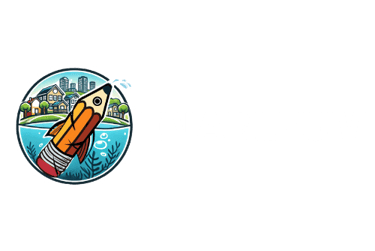Click here visit our Research-supported educational program for children
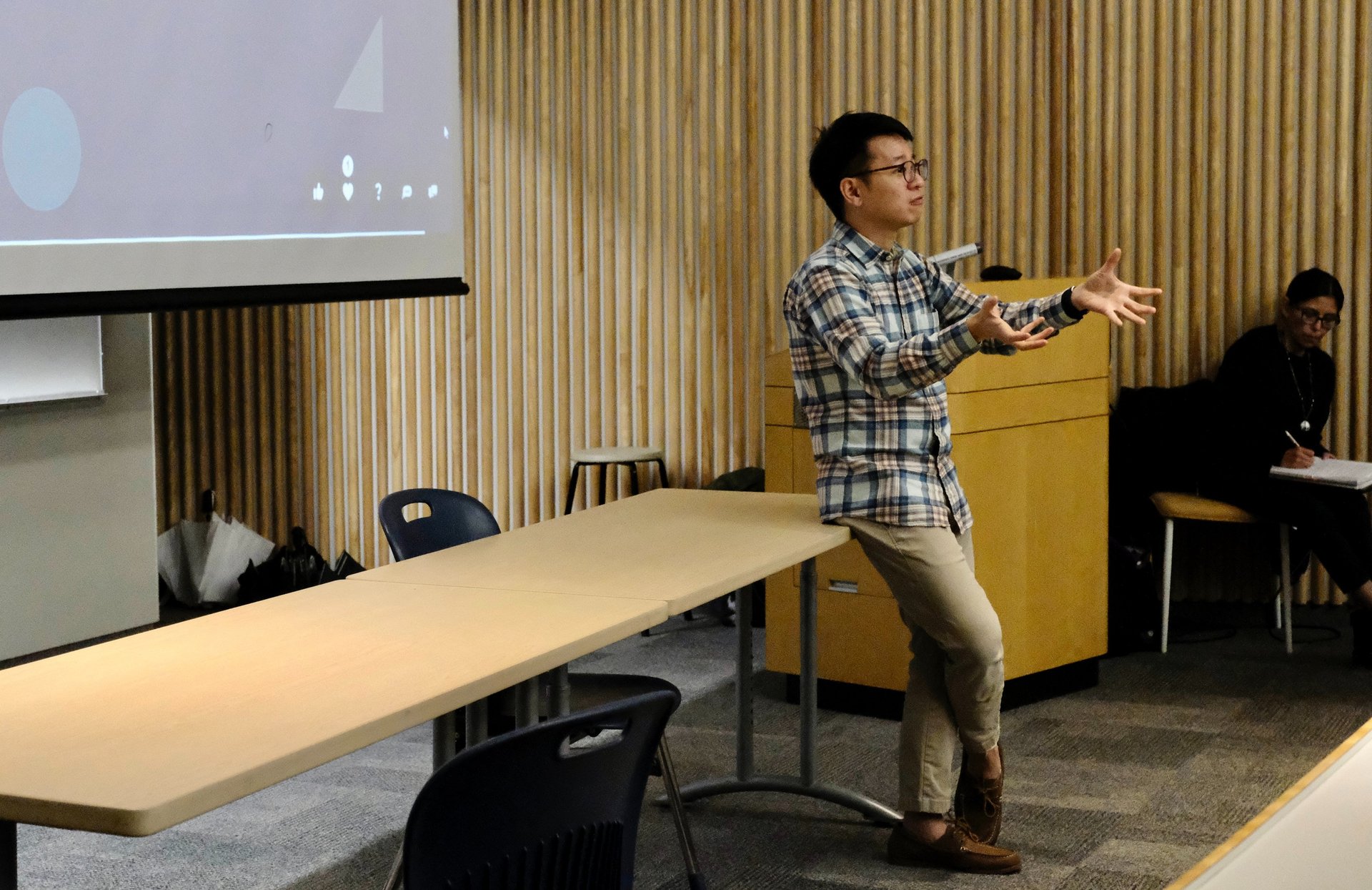
Tempo Giusto — Finding Your Right Pace
Tempo Giusto is a practical workshop for student-teachers and community members. Using the musical idea of the “right pace,” we practice slowing, pausing, and moving purposefully. Short reflections and exercises challenge productivity habits, creating space for deep listening that strengthens authentic TRC and EDI engagement.
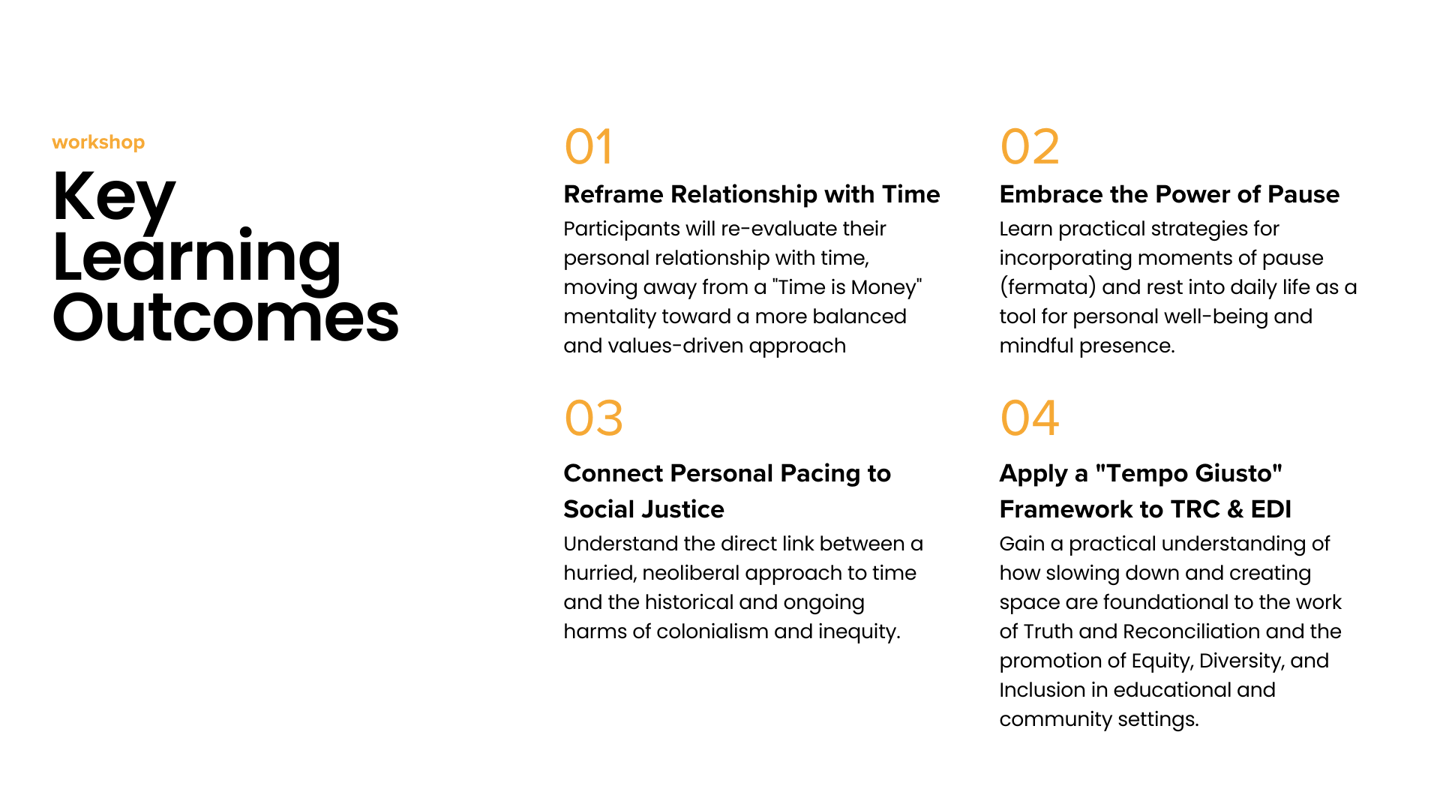

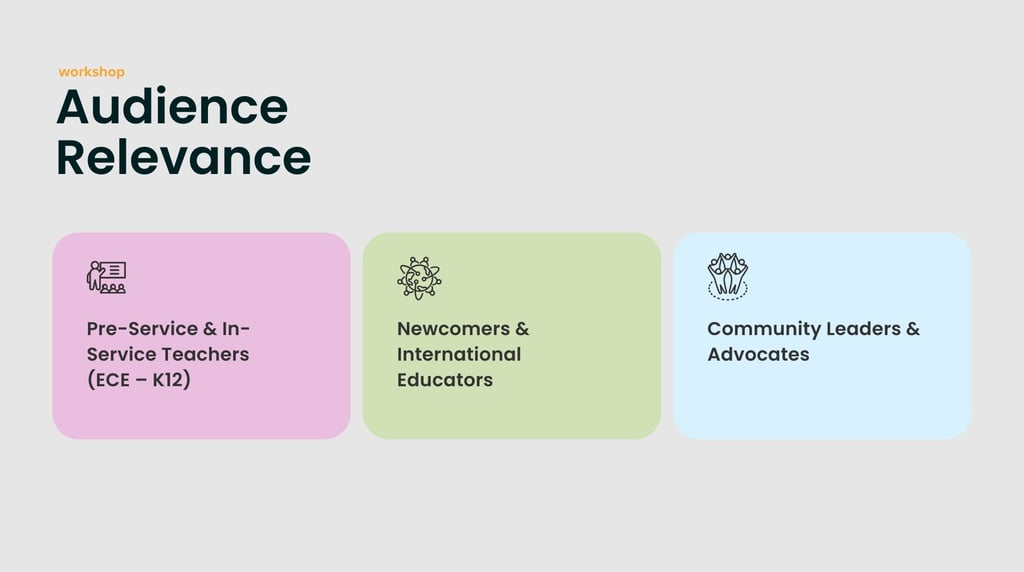

EDI meets TRC
The "Slow" and "Pause"
The workshop will frame the act of slowing down and pausing as a form of resistance to a colonial mindset. A curriculum designed with a "Time is Money" mentality often rushes past Indigenous histories and perspectives, reducing them to a single unit or a tokenistic activity.
Workshop Activity
Participants will be prompted to reflect on a specific curriculum topic (e.g., local history, land use, or a historical event). They will be asked: "How might a 'tempo giusto' approach—allowing for a 'fermata' or an extended, slow exploration—allow you to decolonize this topic? What Indigenous stories, relationships to the land, or ways of knowing are you missing by rushing through it?" This encourages them to see reconciliation not just as a content area, but as a practice of slowing down to listen and learn.
TRC (Truth and Reconciliation):
EDI (Equity, Diversity, and Inclusion):
Honoring Different Tempos
The "Tempo Giusto" concept directly relates to creating an inclusive classroom. The workshop will highlight how a rigid, fast pace can be a barrier for students with diverse learning needs, cultural backgrounds, or those who are neurodivergent.
Workshop Activity
Participants will be asked to consider a classroom scenario where a student is not "keeping up." The discussion will reframe this as a potential "temporal clash" rather than a student deficit. They'll be prompted to brainstorm ways to adjust their own pace or create flexible learning environments that honor each student's unique tempo.
Example: An educator who practices "tempo giusto" understands that not all students process information at the same speed. They might use a fermata (a pause) after asking a question to give all students, including English language learners or students with processing differences, the time they need to formulate a response, rather than immediately accepting an answer from the first hand that goes up.
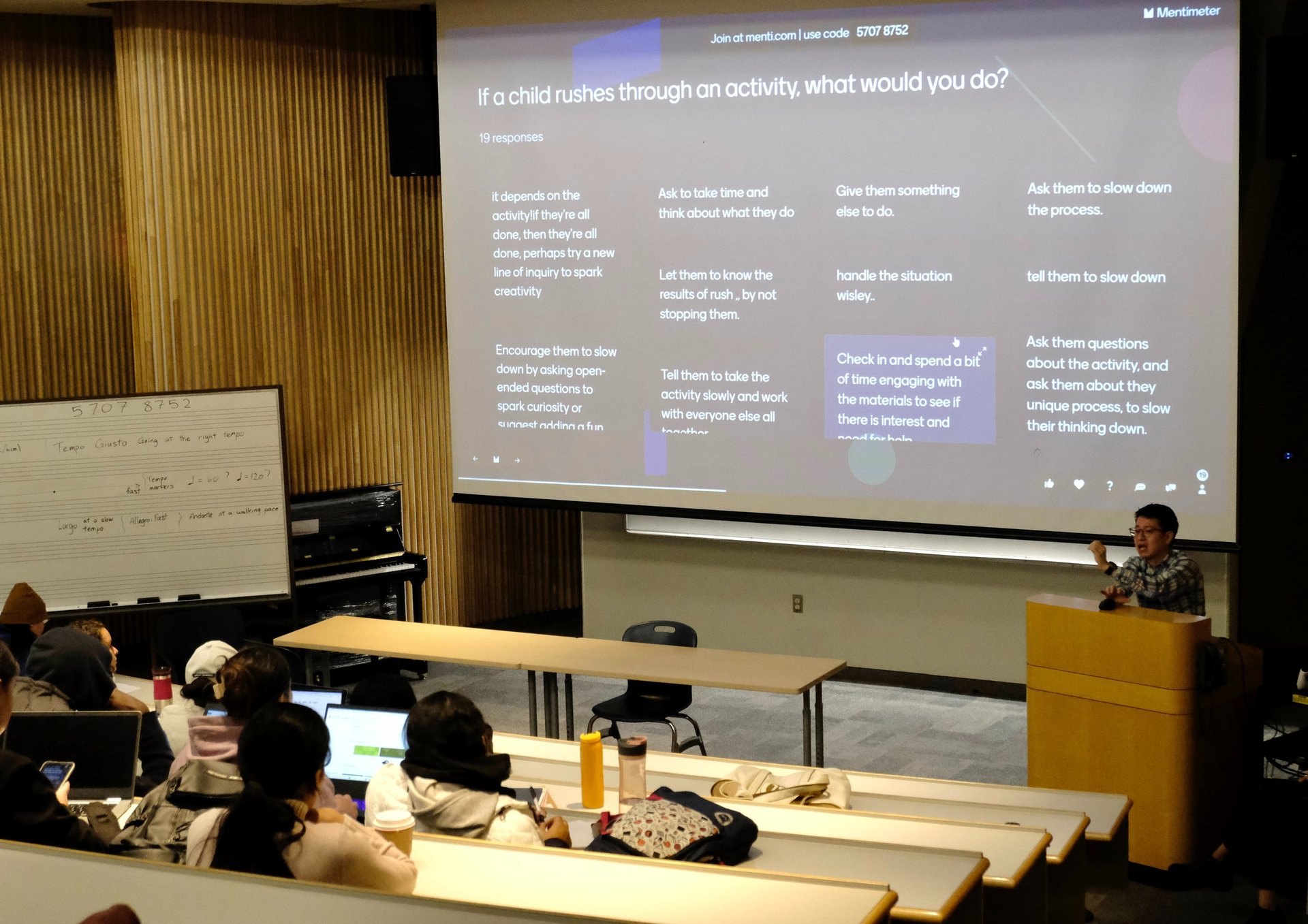
Why it matters
Life moves fast. This workshop teaches a healthier pace so educators and leaders can listen better, care better, and lead better.
Your grant helps us reach more people—equipping future educators to protect their well-being and practice patient, thoughtful engagement that supports TRC and EDI.



